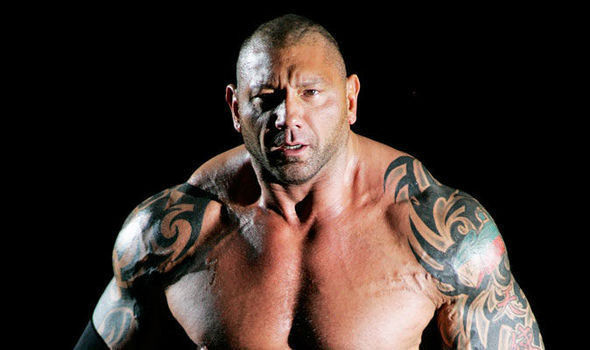Former WWE superstar Batista spoke with Uproxx to promote his appearance on HBO’s Room 104 and discusses his drawing ability in wrestling. Highlights from the interview can be found below.
How he had more pull in wrestling after he established himself as a top draw:
It was kind of a learning process for me. I didn’t know how much value I had. I didn’t know how much stroke I had until I started drawing money. Because to me, when it comes to professional wrestling, it was the same. I didn’t understand storylines, I didn’t understand programs. I didn’t understand all those things. But I learned along the way. And as I learned along the way, I also learned how much influence I had on my storylines or how much people were willing to listen, because sometimes they’re not, sometimes they’re not willing to listen, but they are more likely to listen when you’re making millions of dollars for a company.
On getting his role in HBO’s Room 104:
When it was first brought to my attention, they did tell me about the nature of the professional wrestling aspect of it and I immediately shot it down. I was really not interested. I’ve really worked hard to remove myself from that and people seeing me as a professional wrestler. And one of my agents said, “You just got to read this, man, please read this. It’s exactly what you’ve been looking for.” And so I did, I read it and I said, “Wow.” I was kind of blown away. It’s just so deep and then I knew it would be a real stretch for me as a performer and also allow people to see me in a different light.
How he uses his physicality as a wrestler to help him get roles:
I never really looked at it like that, it was never really a time thing for me as far as physicality. I’m still in good shape. I think I’m still in better shape than most people that I step on stage with, but those weren’t actually the roles that I was after. I wasn’t after the big action hero type roles. And, oddly enough, those are the roles that are still not being offered to me. Those types of roles. I really just wanted to be a dramatic actor and I pretty much have my career mapped out now and I know what I want to do for the rest of my career as far as being in front of the camera. There are a few roles, certain roles I would still like to play. But I think when I leave this, I will step into producing, which I’ve already kind of laid the groundwork for. And eventually, hopefully direct. For me, I’ve always had the mindset, “If I can make my name, if I can be respected, if I can become a bigger name than I’ve become in this industry, the more likely it is that people are to listen when I walk in a room.” So if people are listening when I walk in a room, then I can get projects made. I can come in with scripts and say, “This is a beautiful script, this is a beautiful story. This is an inspiring story, I want to tell this story on film,” and then people will listen. They will pay attention if I’m a valuable commodity. So I think I’ve always had that mindset, make my way, earn the respect of my peers, become a big name, become a star and you can get films made. And at the end of the day, that’s what I want to do because throughout professional wrestling, throughout films, I’m a storyteller. I love telling stories. And that’s what I will do for the rest of my life. In one capacity or another.


